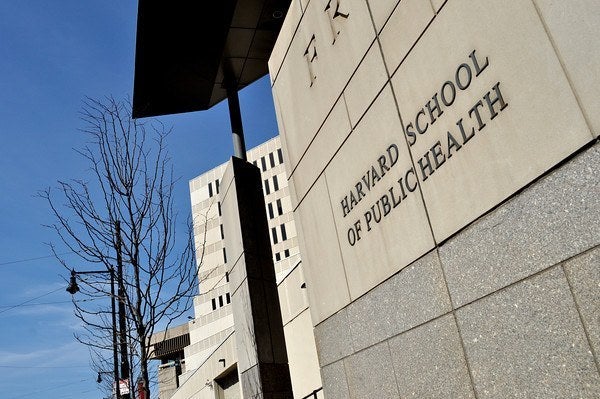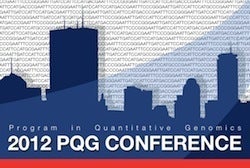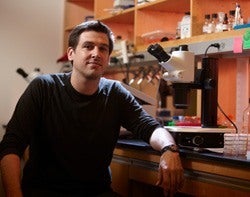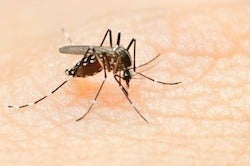Related Topics
Researchers uncover 74 new genetic risk factors for breast, prostate and ovarian cancer
April 11, 2013 -- In the largest-ever study of its kind, an international collaboration of hundreds of scientists has uncovered 74 new genetic markers linked to three common hormonal cancers—breast, prostate, and ovarian—thus setting the stage for new…

Malaria parasite transforms itself to hide from human immune system
December 13, 2012 -- In order to spread disease inside the human body, the malaria parasite must evade the human immune system—which it does remarkably well. Now, researchers at Harvard School of Public Health (HSPH) have uncovered details about…

HSPH faculty members honored
November 30, 2012 -- Brendan Manning, associate professor of genetics and complex diseases, received a 2012 Senior Scholar in Aging Award from The Ellison Medical Foundation for his research on determining the genetic and metabolic relationship between the major longevity…

HSPH, Dana-Farber host sixth annual quantitative genomics conference
November 27, 2012 -- What does genome-wide analysis reveal about complex human traits? What’s the best way to design and analyze gene-sequencing studies? These were some of the questions addressed at the sixth annual PQG (Program in Quantitative…

Aspirin may lengthen life for colorectal cancer patients with certain gene mutation
Colorectal cancer patients with a particular gene mutation may gain several years of life if they take aspirin, according to Harvard School of Public Health (HSPH) research. Roughly 20 percent of those with colorectal cancer have the mutation,…
Genetic risk for diabetes hurts heart health
Coverage in Huffington Post, October 17, 2012, featuring a study from HSPH.
Sugary drinks may magnify the genetic risk of obesity
Article in USA Today featuring HSPH's Frank Hu, September 21, 2012
Regular consumption of sugary beverages linked to increased genetic risk of obesity
For immediate release: Friday, September 21, 2012 Researchers from Harvard School of Public Health have found that greater consumption of sugar-sweetened beverages (SSBs) is linked with a greater genetic susceptibility to high body mass index (BMI) and increased…

Why do we age? Surprising revelations from a worm
[ Fall 2012 ] HSPH’s Will Mair hopes his work in worms will identify molecules that have an effect on aging-related diseases—and which could ultimately be tested as treatments for humans. “How old you are is immutable—you can’t…

Analyzing entire malaria parasite genome provides clues on malaria drug resistance
August 2, 2012 -- Using a more thorough type of analysis than has been used before to examine the genetic makeup of the malaria parasite, researchers from Harvard School of Public Health (HSPH), Harvard University, and the Broad…
